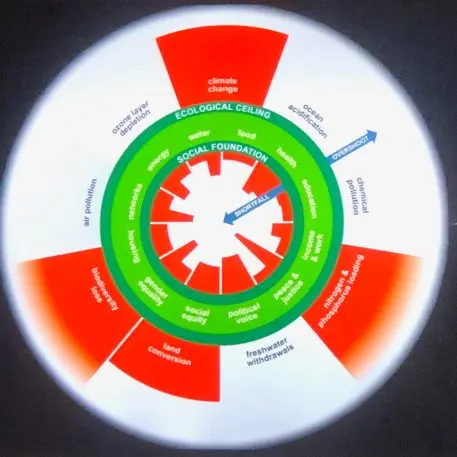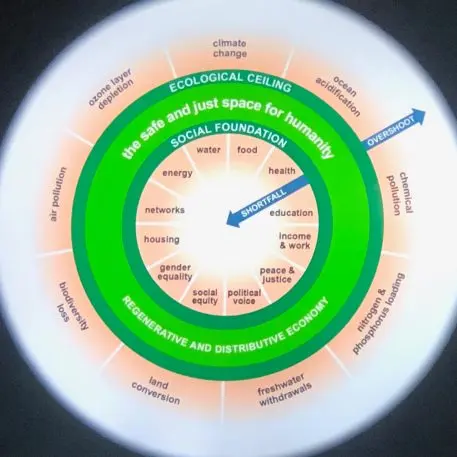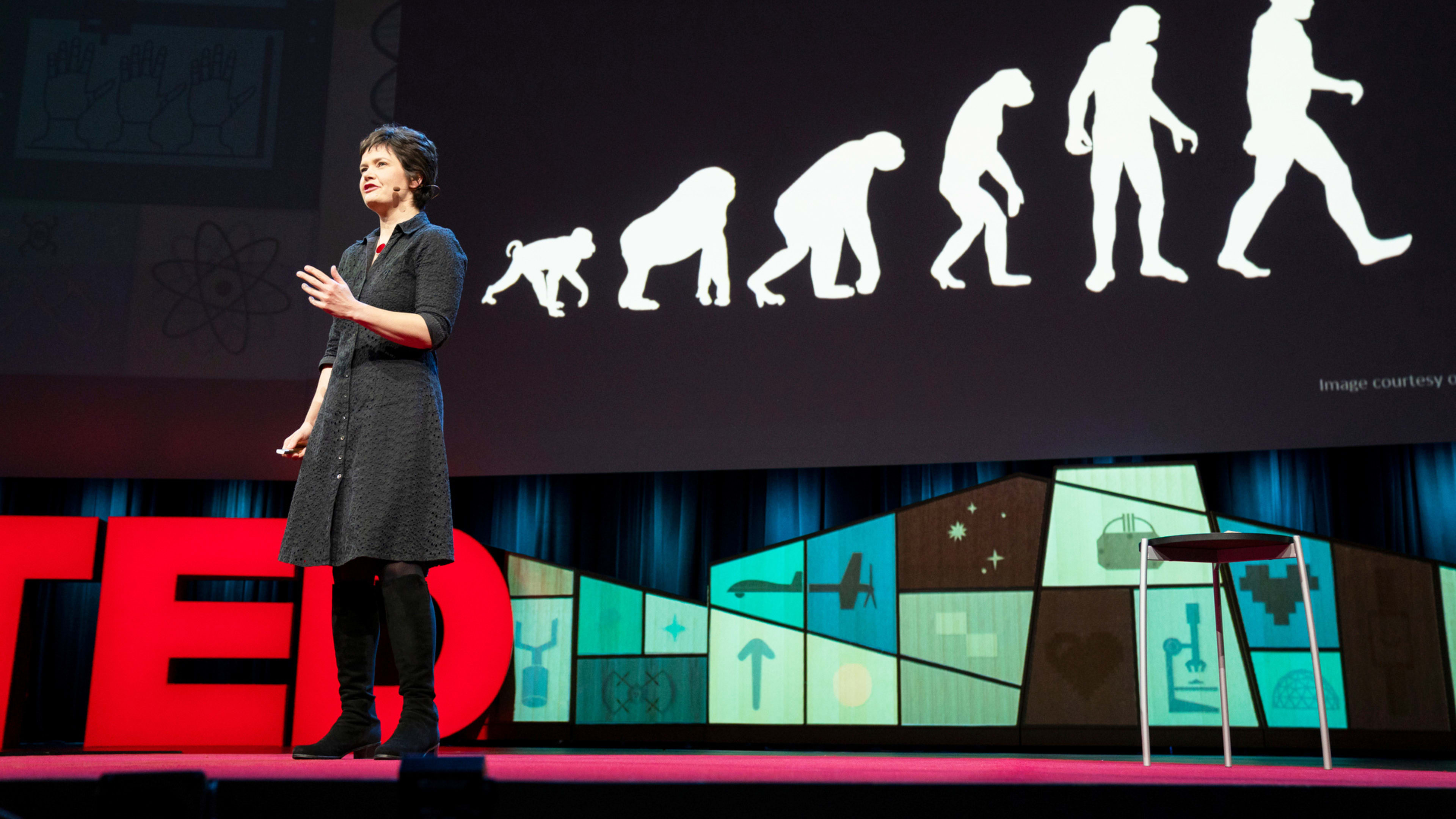The story of mankind that we most like to tell ourselves is one of growth, says economist Kate Raworth at TED 2018 in Vancouver. We’re all used to that image of the silhouettes, marching forward from ape to fully-upright human. “We readily believe that economic progress will take the same shape–an ever-rising line of growth,” Raworth says.
“Today, we have economies that need to grow whether or not they make us thrive,” Raworth says. “What we need, even in the richest countries, are economies that make us thrive whether or not they grow.”

That, she says, will be a difficult shift to bring about. “We’re financially, politically, and socially addicted to growth,” Raworth says. Perhaps no one better enshrined our dependence on GDP than the economist Walter Rostow, whose 1960 book, The Stages of Economic Growth: A Non-Communist Manifesto outlined the “ideal” trajectory for a country’s development, using a rather blunt airplane metaphor. Countries prepare for takeoff by building up institutions and banks, which continue to grow until the country truly takes off and reaches peak prosperity and mass consumption. “But this plane is never allowed to land,” Raworth says. “Rostow left us flying into the sunset of mass consumerism.”
In other words, Rostow left no space to imagine a country driven to succeed by any metric other than that of continual growth. That, Raworth says, has created a system that prioritizes GDP over the health of the planet and the well-being of the people who inhabit it, and that, she says, is fundamentally unsustainable.
“Humanity’s 21st-century challenge is clear: To meet the needs of all people,” Raworth says. “Progress on this goal is not going to be measured by money–we need a dashboard of indicators.”
When Raworth drew up a diagram of how those indicators might interact, it ended up looking like a donut (she wrote a book last year called Donut Economics, explaining her theory). On the inner ring of this donut are things that are crucial to our survival and our societies: water, energy, food, health, housing, social equity, education, income, and work. At the outer edge are the potential consequences of achieving these things: climate change, freshwater withdrawals, biodiversity loss, air pollution, ocean acidification, land conversion, nitrogen and phosphorous loading.
Between the two border rings, though, Raworth draws a middle ground she calls “the safe and just space for humanity.” That safe space falls right between our social foundation (the base layer of resources we need to survive) and our ecological ceiling (the amount of resources we can extract from the world while still allowing it to regenerate).

Currently, we’re overtaxing the Earth’s resources: We’re already seeing the effects of climate change, nitrogen and phosphorous loading, land conversion, and biodiversity loss. Yet at the same time, we’re failing to meet the needs that keep our foundation strong, because our economy is structured in such a way as to funnel resources and wealth toward people who already possess it. Our current growth-driven strategy will only exacerbate this dynamic.
What Raworth is calling for is an “economy that tackles this shortfall and overshoot together, by design.” She imagines implementing regenerative systems at scale–things like universal basic income and renewable energy–while ensuring that our systems and governments prioritizing distributing resources, rather than hoarding them in the name of growth. “If we can harness today’s technology in service of distributive design, we can ensure that healthcare, political voice, financial resources reach and empower people,” she says.
Why is it, Raworth wonders, that we understand that when another human tells us, “I have a growth,” we know that indicates a health failure? “When something tries to grow forever within a healthy, thriving system, it’s a threat to the whole,” she says. “Why do we imagine our economies can buck this trend and grow forever?”
Recognize your brand’s excellence by applying to this year’s Brands That Matter Awards before the early-rate deadline, May 3.
